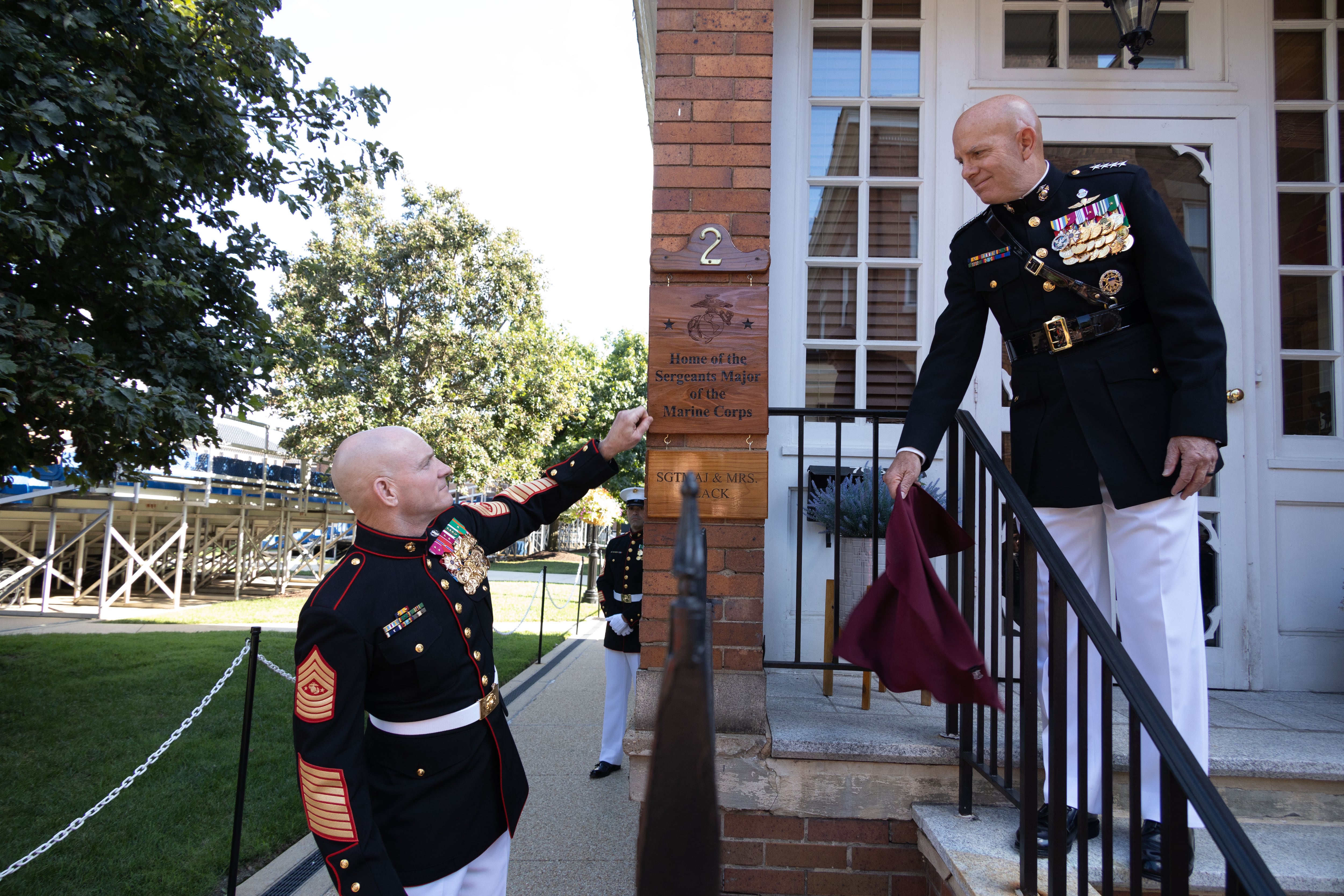Gen. David Berger will end his term as the top Marine in July 2023 after four years of leading the Corps through a far-reaching modernization effort that aims to prepare the force for possible conflict with China.
The 39th commandant will take Berger’s place after being appointed by the president and confirmed by the Senate.
“One part of that transition is ensuring that every single relationship, to whatever degree it’s personal, becomes an institutional one — that you all trust the Marine Corps, not just Dave Berger, same with the secretary of defense, same with Congress,” Berger told reporters at a Defense Writers Group event on Dec. 7.
During his nearly four years as the 38th commandant, Berger has spearheaded Force Design 2030, a dramatic overhaul of the Marine Corps. The plan seeks to revamp the Corps’ capabilities as it realigns its main focus toward amphibious operations in the Pacific, rather than land warfare in the Middle East.
RELATED

Force Design 2030 has faced criticism from some high-profile retired Marines, but Marine leaders have defended it as necessary because of the rising threat of China and technological advancements in warfare.
Berger assumed the role of commandant on July 11, 2019, after being confirmed by the Senate.
Commandants serve four-year terms, and they can’t serve more than one term unless Congress has declared a time of war or national emergency.
It’s likely that the White House will nominate the new commandant between January and May, with Senate confirmation in June, according to Marine spokesman Maj. Joshua Larson.
Law requires that the nominee for commandant be a general officer, not necessarily a three- or four-star. But given that the commandant is the top role in the Corps, recent nominees have held one of those two grades. Commandants automatically become four-stars by assuming the role.

By statute, any nominee is supposed to have completed at least one full tour as a general officer in a joint-duty assignment, involving the integration of multiple forces or nations.
In addition to serving as the Marine Corps’ top general, the commandant is also a member of the joint chiefs of staff, the body that advises the president on military matters.
The end of a general’s term as commandant hasn’t always spelled the end of his military service. Gen. Joseph Dunford, the 36th commandant, went on to serve as chair of the joint chiefs of staff.
Berger, in response to a question from a reporter on Dec. 3 at the Reagan National Defense Forum about whether he was retiring, said, “Yes, according to my wife, absolutely.”
Another high-profile changeover in the Marine Corps is likely to come by the summer of 2023, when Sergeant Major of the Marine Corps Troy Black will have served as the top enlisted Marine for four years. The commandant approves the Marine for this role, typically for a four-year term, after a board selects a candidate from a pool of sergeants major.
The terms of the chair of the joint chiefs of staff, the Army chief and the Navy chief will also end in 2023.
Correction: This article has been updated to more accurately reflect how a sergeant major of the Marine Corps is chosen and approved.
Irene Loewenson is a staff reporter for Marine Corps Times. She joined Military Times as an editorial fellow in August 2022. She is a graduate of Williams College, where she was the editor-in-chief of the student newspaper.




